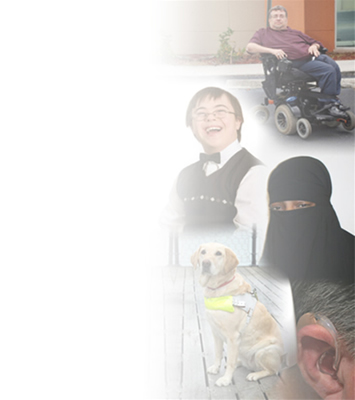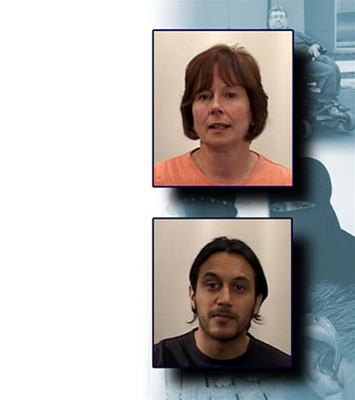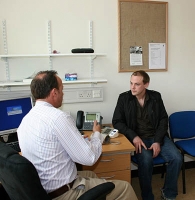Understanding Equality and Diversity-patient Scenarios course for GPs



This session uses 2 patient scenarios to help you consider how to respond to the diverse needs of patients on a personal, professional and organisational level.
This session was reviewed by Khyati Bakhai and last updated in January 2022.
Learning objectives
By the end of this session you will be able to:
- appraise your own values and beliefs and how they might influence your interaction with patients
- recognise individual patient needs so that access to care is not compromised
- assess these needs and apply practical measures to improve the services offered to patients in your practice
The concept of the patient-centered approach is well-known, but often we have to think about how we can best provide care for patients whose needs may be very diverse.
Before commencing this session you should have completed:
- Understanding equality and diversity (400-0057)
Jackie Beavan qualified as a nurse in 1971 and was a hospital nurse until the mid-eighties. Since then, she has worked in education and training and has a special interest in communication, equality and diversity.
She has a BA in English, a BSc in Health Science and an MA in Linguistics. In 2002, she helped to update the second edition of ’Valuing Diversity’, an educational resource for GPs, commissioned by the RCGP and edited by Joe Kai. She was also involved in the research and development of ’PROCEED: Professionals responding to ethnic diversity and cancer’, an educational resource commissioned by Cancer Research UK, also edited by Joe Kai.
Jackie is based at the Interactive Studies Unit in the Department of Primary Care and General Practice at the University of Birmingham. Her main role there is to deliver courses in advanced communication skills to senior health professionals working in cancer care. She is also involved in delivering training in communication, equality and human rights for health professionals and medical students. Currently, she is working with Heart of Birmingham Primary Care Trust on a human rights pilot project in conjunction with the Department of Health and the British Institute of Human Rights.


Dr Gill is a Reader in Primary Care Research at the University of Birmingham and a GP in Birmingham. His research interests include addressing health inequalities particularly amongst migrant populations and evidence-based health care and its application to health care delivery. In addition he is also the Regional Patron for the charity South Asian Health Foundation
- Mental Health Promotion in the Perinatal Period co...
- Posted By eIntegrity Healthcare e-Learning
- Posted Date: 2024-11-02
- Location:Online
- This session aims to raise awareness regarding the factors that predispose women to mental ill healt...
- Epilepsy in People with Learning Disabilities cour...
- Posted By eIntegrity Healthcare e-Learning
- Posted Date: 2024-11-01
- Location:Online
- This session describes how to provide a high standard of care to patients with learning disabilities...
- Screening Programmes Part 2: Antenatal and Newborn...
- Posted By eIntegrity Healthcare e-Learning
- Posted Date: 2024-11-01
- Location:Online
- This session describes and discusses the NHS Fetal Anomaly Screening Programme, the NHS Newborn and ...
- Screening Programmes Part 1: Pregnancy and Newborn...
- Posted By eIntegrity Healthcare e-Learning
- Posted Date: 2024-11-01
- Location:Online
- This session will describe and discuss the following three NHS antenatal and newborn screening progr...
- Ensuring Quality: Role of the UK NSC, Policy Devel...
- Posted By eIntegrity Healthcare e-Learning
- Posted Date: 2024-11-01
- Location:Online
- This sessions offers you an understanding of how screening programmes are chosen and how their quali...






